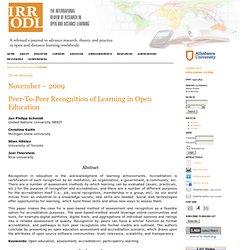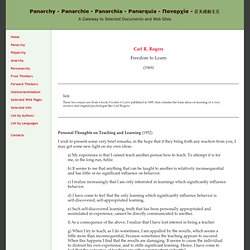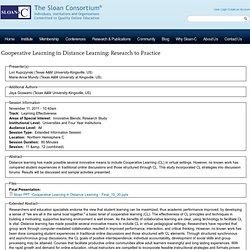

2006_KBTheory. Discover Yourself! Peer-To-Peer Recognition of Learning in Open Education. Jan Philipp Schmidt United Nations University MERIT Christine Geith Michigan State University Stian Håklev University of Toronto.

Carl R. Rogers, Freedom to Learn (1969) Personal Thoughts on Teaching and Learning (1952) I wish to present some very brief remarks, in the hope that if they bring forth any reaction from you, I may get some new light on my own ideas. a) My experience is that I cannot teach another person how to teach.

I am almost afraid I may seem to have gotten away from any discussion of learning, as well as teaching. Let me again introduce a practical note by saying that by themselves these interpretations of my experience may sound queer and aberrant, but not particularly shocking. Cooperative Learning in Distance Learning: Research to Practice. Researchers and education specialists endorse the view that student learning can be maximized, thus academic performance improved, by developing a sense of "we are all in the same boat together," a basic tenet of cooperative learning (CL).

The effectiveness of CL principles and techniques in building a motivating, supportive learning environment is well known. As the benefits of collaborative learning are clear, using technology to facilitate CL is vital.